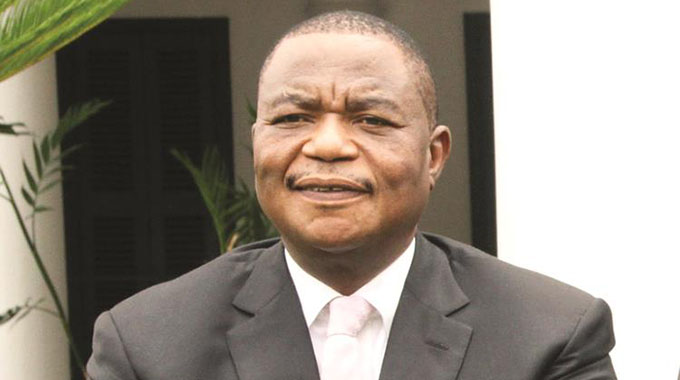Forex auction for small businesses

Herald Reporter
As the ruling exchange rate set on the major weekly auction slid just 4.8 percent yesterday to $80.4663 to US$1, the Reserve Bank of Zimbabwe (RBZ) announced the introduction of a second weekly Thursday auction for small and medium businesses needing to buy US$2 500 to US$20 000.
Yesterday’s “big-bidder” auction, where bids have to be for between US$50 000 and US$500 000, saw a large pool of US$18 531 336.74 allocated for the 201 valid bids totalling US$19 773 961.25.
This is the smallest gap between desired foreign exchange and allocated foreign exchange since the auction system started, a sign of the growing equilibrium in the process in the seven auctions so far.
The highest bid crept up to $87:US$1 but the lowest bid was $70:1 with the lowest successful bid at $78:US$1. While the gap between the lowest winning bid and the top bid expanded slightly to $9, the weighted average and the lowest successful bid both suggest that most bids must have been in a very tight range around $80:US$1.
The number of disqualified bids fell to just 36, as more and more bidders now manage to meet the conditions set by the Reserve Bank to get into the actual bidding process.
There were 237 submitted bids but 201 bidders took part in the auction, although some bids, those below $78, did not make the allocation list.
With the growing success of the auction system, and in response to the pleas by smaller businesses who simply do not need US$50 000, the minimum bid, Reserve Bank Governor Dr John Mangudya yesterday announced that there will be a second auction each week, this one on Thursdays, where small and medium businesses can bid for smaller lots of between US$2 500 and US$20 000.
It was unclear last night if the banks and potential bidders had enough time to assemble the bids and supporting documents today for a first auction tomorrow, but if not then the first small-bidder auction is likely to be next week.
The rules will be the same on the Thursday small-bidder auctions as for the Tuesday big-bidder auctions. Bids have to be submitted through banks, backed by proof of what the foreign currency will be used to pay for, with invoices attached to the bid document.
Bidders will have to have cleared their export receipts, sorted out outstanding bills of entry, have nostro account funds less than their bid, submit only one bid per auction, and have the local currency equivalent available.
As with big bidders, small bidders are compelled to use their allocations to pay the bills they submitted, being in serious trouble if they divert the forex.
The same priority scheme will apply, but with 80 percent of allotted funds for category 1 and 20 percent for category 2.
This is benefit, in general, the smaller industrialists seeking raw materials more than retailers, but small importers of essential products, even if retailers, will be in better categories.
Bids have to be submitted through banks by 3pm on Wednesdays.
One major effect of the small-bidder auction will be to remove another large block of buyers from the black market. They will buy their requirements on the legal market, so reducing demand for pavement dollars and cutting out another batch of middlemen who accumulate the small notes sold on pavements.
Speaking after the big-bidder auction yesterday, and commenting on the small slippage in rates, economist and member of the Monetary Policy Committee, Mr Eddie Cross, said: “This is symptomatic of the Dutch auction system we are using. If we had more resources the rate would strengthen.”
Another economist Mr Percy Gwanyanya said: “The continued depreciation of the ZWL in the Foreign Currency Auction market largely reflects that it’s still a seller’s market, with RBZ as the major supplier of foreign currency in the market.
It appears the holders of foreign currency are still to increase participation in the newly established auctions, which is largely viewed less attractive than the black market at a time when the holders of foreign currency have an option to use the foreign currency for their local purchases in the current dual pricing regime.
The limited participation by foreign currency holders is, however, increasingly difficult for them to sustain since they are now holding an estimated US$1.2 billion in their nostro accounts, and at some stage will need to pay local currency bills, and although they do have to surrender an average of 30 percent of export earnings, so automatically have some local currency in their accounts, they at some stage will need more.
As the small-bidder auction removes another layer from the black market, the opportunities for large holders of foreign currency to do better than the auctions will be further reduced.
It’s important to realise that there is a lot of foreign currency sloshing in the informal sector.
Last year South Africa reported that about 70 tonnes of gold was sold to South Africa from informal channels of Zimbabwe. At the current price of US$50 per gram this translates to about US$3,5 billion.
Similar statistics were revealed by Dubai which reported that they bought about US$2 billion of gold from Zimbabwe from the Zimbabwe’s informal channels. This makes total foreign currency from gold of US$5,5 billion.










Comments